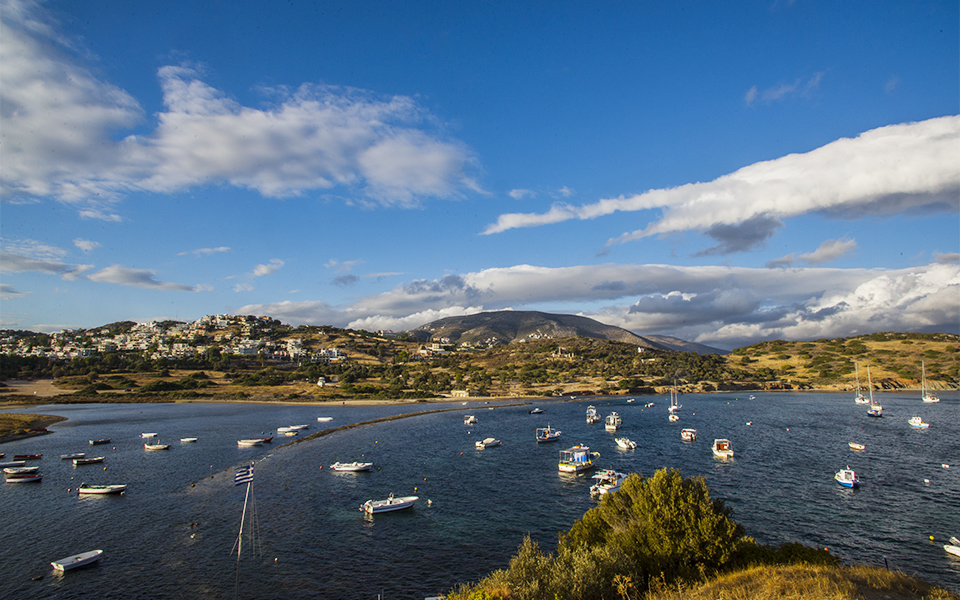For many visitors to Greece, the name ‘Saronic’ is most associated with the Saronic Gulf and the popular islands of Spetses, Hydra and Poros. But towards the other, eastern end of the gulf, there where the peninsula of Attica meets the Aegean at the cape of Sounion with its famed Temple of Poseidon, you will find another ‘Saronic’ – specifically the Municipality of Saronikos, an area with much to explore and one that is only a short drive from Athens.
We recently had the pleasure of exploring the coastline of Saronikos and the beauty of its mountainous interior – the areas around the towns and villages of Anavyssos, Palaia Fokaia, Saronida, Kouvaras and Kalyvia Thorikou
Overall the municipality has 30,000 year-round residents, and about 70,000 seasonal residents – mainly Athenians who have summer homes in the region which they move to in the warmer months. Additionally, the region receives as many as 100,000 day-trippers per day during the summer months, according to Mayor Georgios Sofronis.
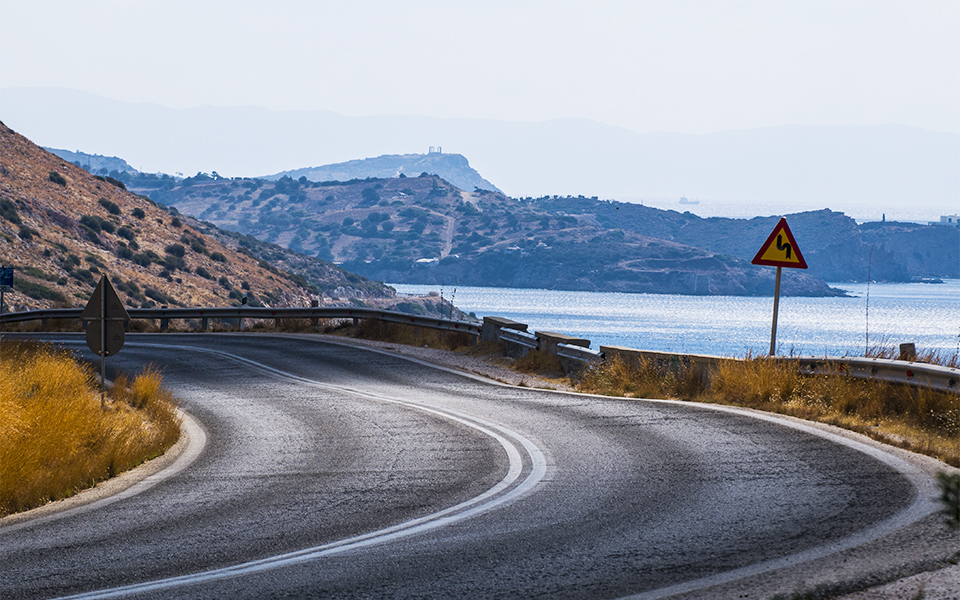
© Clairy Moustafellou
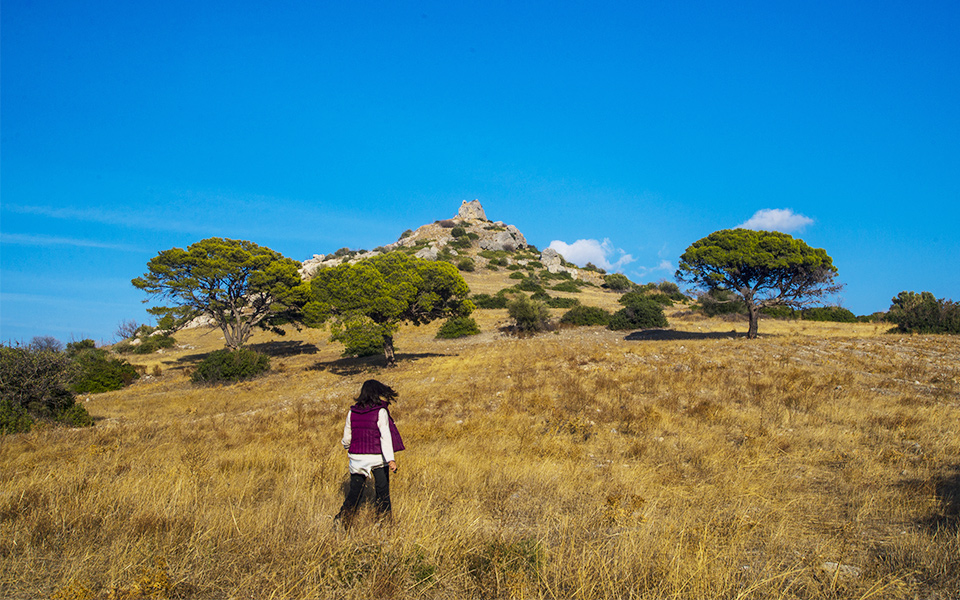
© Clairy Moustafellou
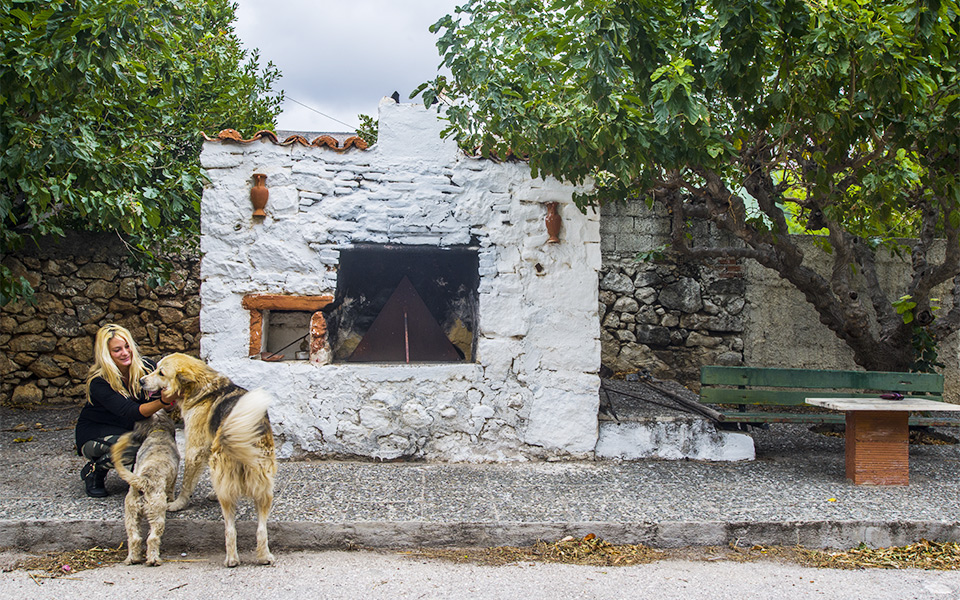
© Clairy Moustafellou
Saronida in particular is a popular part of the Athens Riviera for beach-goers, while the area’s large, high-end resorts also frequently host conferences and large corporate events.
Following a four-day tour of the area we can wholeheartedly recommend you plan a similar journey. Given its proximity to Athens it is worth visiting even for just a day-long trip (which can also be combined with a visit to the Temple of Poseidon in Sounion).
Here you can hike along paths through pine forests, eat fantastic grilled meats in the village of Kalyvia, or take long, contemplative walks along pretty beaches. You can go horseback riding, mountain biking, hiking and windsurfing. You can even meet alpacas and discover other unexpected and little-known charms in Athens’ backyard.
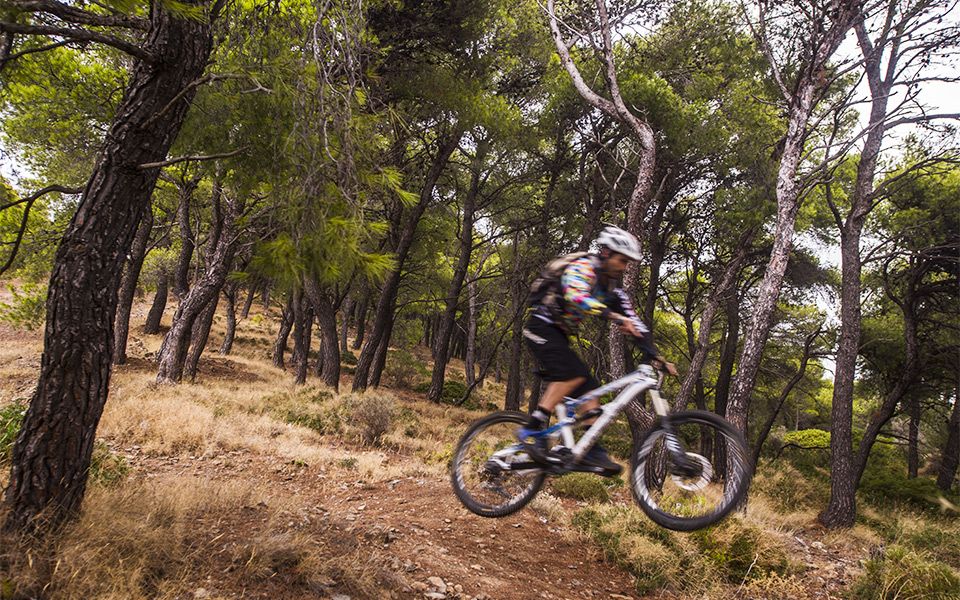
© Clairy Moustafellou
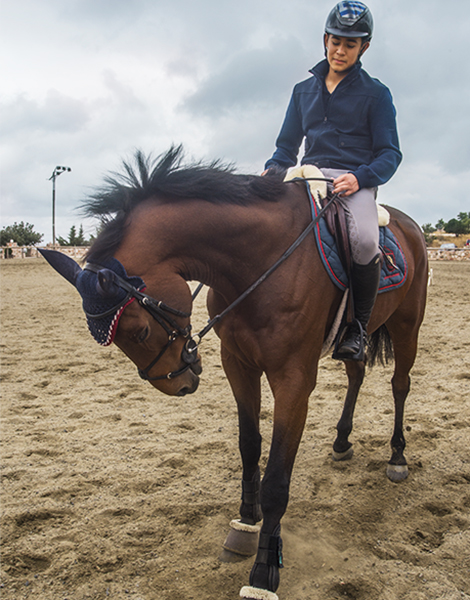
© Clairy Moustafellou
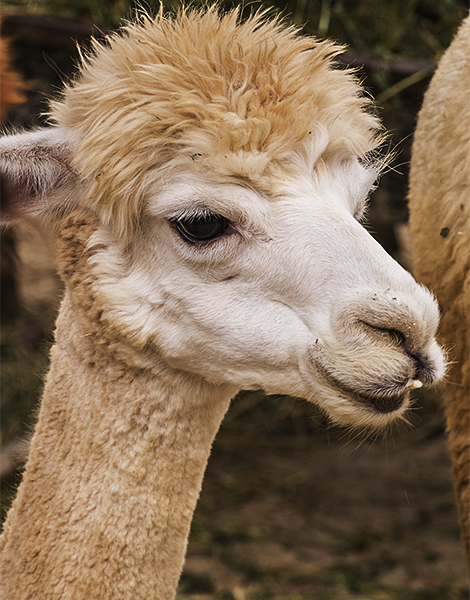
© Clairy Moustafellou
Head for the Mountains
The area has its own Mt. Olympus and it even has a peak known as Mytikas – just as its far more famous cousin in the north. That said, it is of course nowhere near as high, rising to an elevation of just 487 meters.
In the foothills of this mini-Olympus, a small village of the same name is found with a communal wood-fired oven at the central crossroads, towering poplars and the capitals of ancient columns strewn about front yards as visual testaments to the village’s connection to the ancient history of Attica.
For dedicated explorers of little-known landscapes, the coastal settlement of Palaia Fokaia has its own ‘highlands’ – Asvestokamino, Gerakina, Souflero and more. This series of low hills is perfect for all those who love photography and seeking out little-traveled trails.
For running or hiking along easy footpaths, or tackling them with a mountain bike, opt for the forest of Kouvara on Mount Mavrovouni, one of the most vital expanses of green in Attica. If you would like the ease and security of a guided ride, contact Theodosis Divanis (+30 697.231.3904) and Noël Camateras of the Middle Earth Racing Team who arrange cycling excursions in the area. Their logo is a flying sheep – a nod to the area’s long history of animal raising.
In the foothills of Mavrovouni, the Kouvaras Equestrian Club operates all year round and is an impressive center horse riding and other events. Next to the impressive horses you will find a small zoo with hawks, ponies and even alpacas who, with their charming eyes, have a particularly graceful air. A children’s playground, cafe and restaurant complete the facility and make it a perfect place for kids and events.
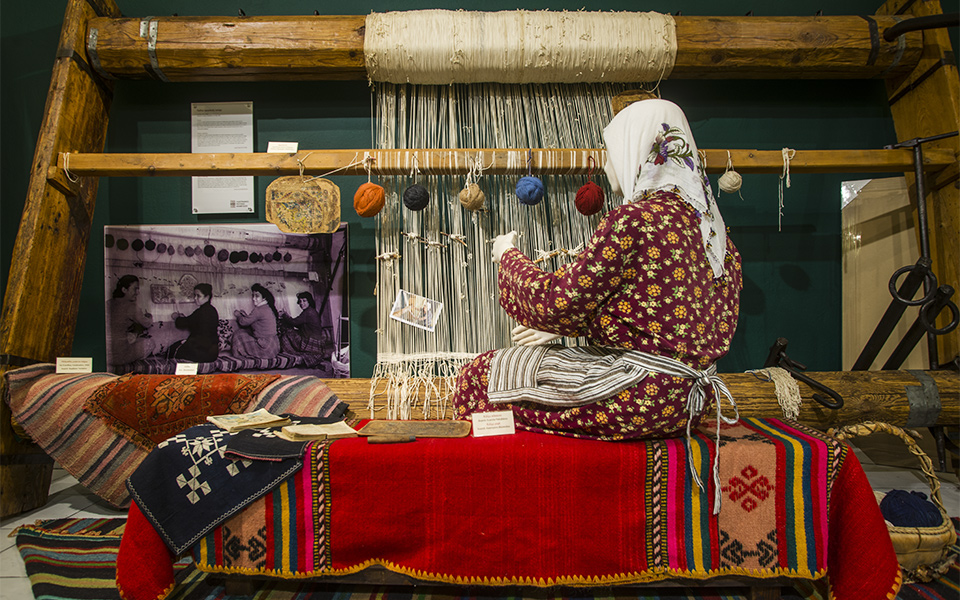
© Clairy Moustafellou
Living Traditions
The inhabitants of Palaia Fokaia are descended from refugees from Asia Minor; the families in Anavyssos originally arrived from Cappadocia; whereas Kalyvia is mainly made up of Arvanites (a people who immigrated in the middle ages from what is today Albania).
Every village and town has its own roots and traditions that it maintains. Indeed that is precisely the mission of the small Folk Museum of Anavyssos where the star of the show is the large loom from Cappadocia. Anavyssos is also home to the Makis Agoutoglou Museum of Asia Minor Culture. While this is currently closed for renovations, it is expected to reopen in the new year.
Additionally, many of the area’s residents also seek to keep their traditions alive through personal initiatives. One such person is Giota Drakou who is attempting to breathe new life into the tradition of ‘bread decorating’. This age-old practice once saw women spending hours sculpting dough to create loaves with symbolic motifs, (such as pomegranates for good luck).
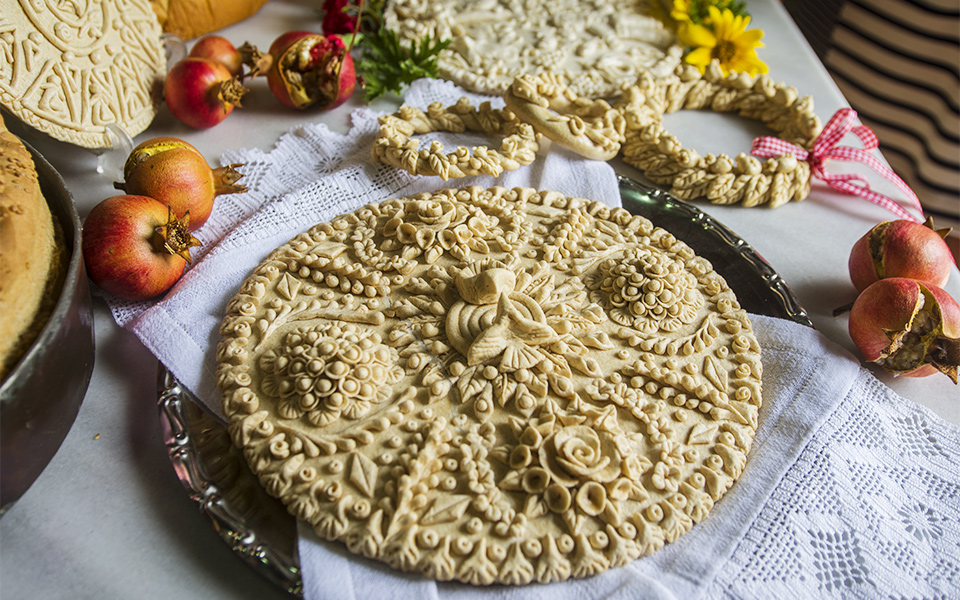
© Clairy Moustafellou
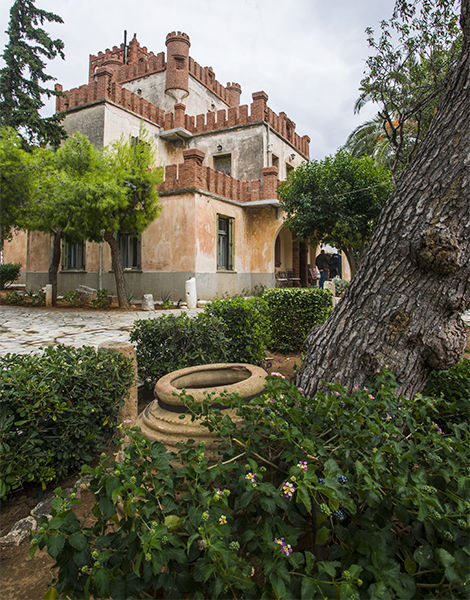
© Clairy Moustafellou
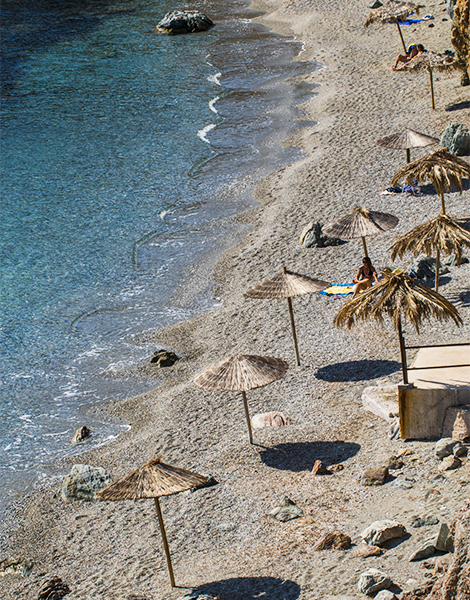
© Clairy Moustafellou
But even if you don’t happen to meet bread sculptors, weavers, or cooks following age-old recipes, you will certainly find tasty artisanal bread baked in wood-fired ovens, moustokouloura (biscuits flavored with grape pomace) and local cheeses and wine. Grapes, olives and pistachios form the main crops cultivated in these lands.
A prominent role in the area’s agricultural history belongs to the onetime large landowners who presided over their estates from defensive tower houses. One of those was Pyrgos tou Melissourgou, which was once the epicenter of a 6000-hectare expanse that included the entire Lagonisi peninsula, neighboring hills and all that the eye can see from the top of the structure.
It was initially built in the middle ages using techniques imported from Mani in the Peloponnese. Since then it has gone through 5 different periods of reconstruction. Today it is a charming and architecturally unique building that is rented out for events.
INFO
Tel. (+30) 697.728.5869, 694.557.8515)
Makis Agoutoglou Museum of Asia Minor Culture
Τel. (+30) 694.599.7987
Pyrgos tou Melissourgou
tel. (+30) 694.439.8383
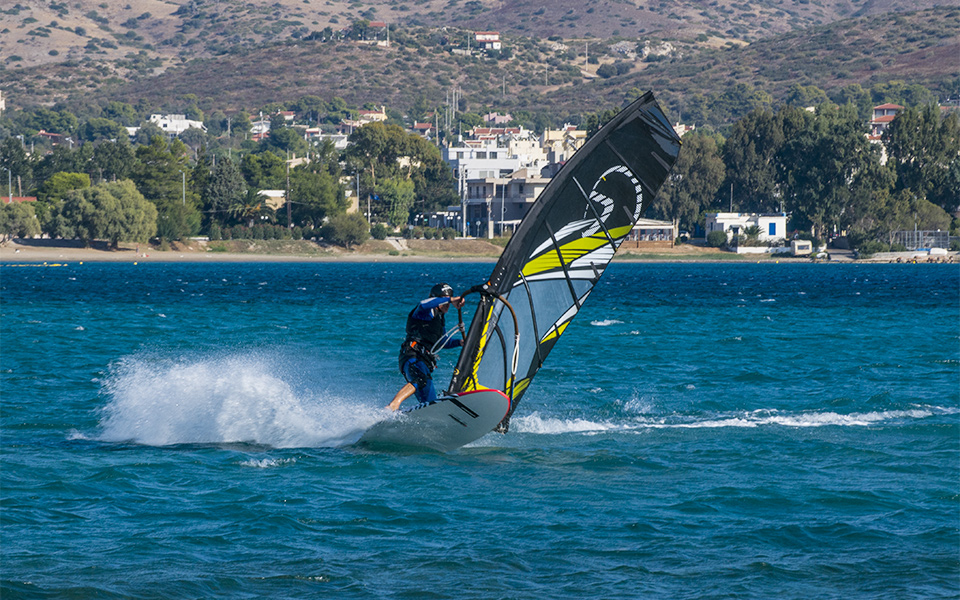
© Clairy Moustafellou
Windsurfers and fishing boats
The beaches of the municipality of Saronikos are dotted along the attractive coastal Athens-Sounion road. Lapped by waters that are in places turquoise, in others green or deep blue, some of the them are lined by beach bars and cafés, while others are tucked away and quiet.
At the 59th kilometer of the coastal road, opposite the islet of Patroklos, one can see the final stretch leading all the way to the Temple of Poseidon in Sounion. Nearby is a memorial to the sinking of the Norwegian steamboat “Oria”, one of the largest maritime disasters ever to happen in the Mediterranean. The ship foundered in a storm of the coast of Attica during the Second World War, costing the lives of about 4,000 people (mainly Italian prisoners of war).
We toured the beaches of Aghios Nikolaos in Lagonissi, Skalakia and Thymari, enjoying the sound of the autumnal sea lapping the shore. We felt envious on seeing the few remaining swimmers, and even more so on spotting the windsurfers in the bay of Anavyssos which is a hotspot for the sport, complete with a windsurfing club on the beach.
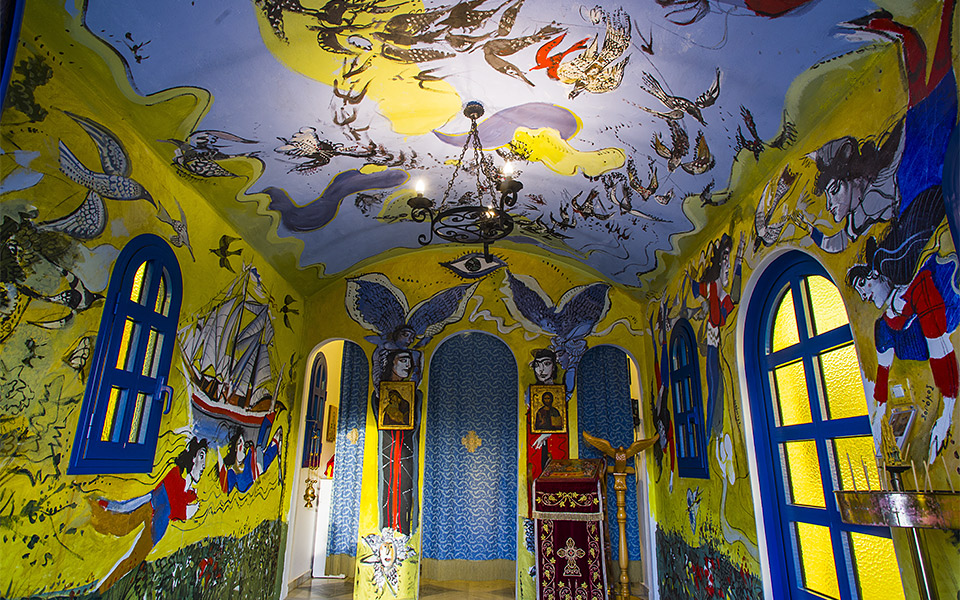
© Clairy Moustafellou
Take a stroll along the seaside path of Saronida, mingling with the locals for whom it is a daily outing. By car, stop at Aghios Nikolaos in Anavyssos and see Tombolo, the small island which has managed to reunite with the mainland by a small strip of beach. Small fishing boats create a picturesque, Instagram-friendly setting.
An unexpected discovery in the bay of Katafygi is the church dedicated to the Panaghia Katafygiotissa (the Virgin Mary of Katafygi meaning ‘Shelter’). Here the interior frescos are true works of art painted by the late Dimitris Mytaras, one of the great figures of 20th century Greek art.
“This little church is a prayer that I always owed,” he wrote about it in his notes. On the walls of the church, set against a yellow background are personifications of the winds (the Levante and the Ponente), seagulls, blackbirds and swallows.
INFO
Panaghia Katafygiotissa
The caretaker of the church is the personal friend of the late Mytaras, Evangelos Vakoulas
Tel. (+30) 697.227.8686
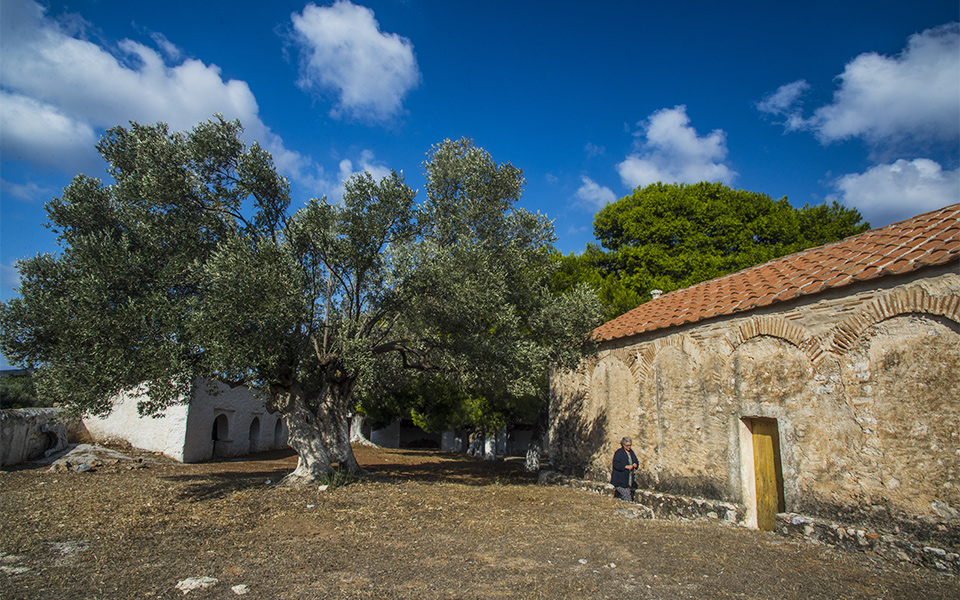
© Clairy Moustafellou
Vineyards and Golden Olives
Do not miss out on visiting the Paleochristian and Byzantine monuments which have been faithfully preserved in the archaeological site of Ennea Pyrgi, just two kilometers outside Kalyvia Thorikou at the site of the medieval settlement.
The archaeologist Eleni Gkini-Tsofopoulou oversaw the preservation work of the churches and we had the joy of being given a tour by her, giving us a deep insight into these little-known living monuments.
The single-roomed wooden-roofed basilica of Aghion Taxiarchon includes sections of frescos dating from the 13th to the 19th centuries, a carved iconostasis and other notable features. Capitals of ancient columns have been built into the walls and contemporary worshippers still visit every Tuesday when the church is open.
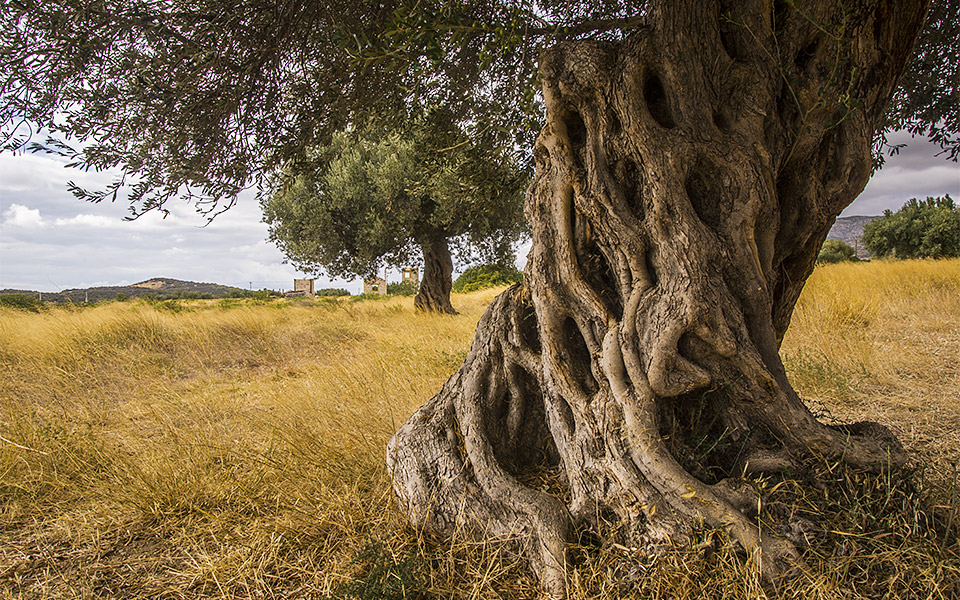
© Clairy Moustafellou
Aghios Petros, in the shade of an enormous oak, is a domed church with a huge semicircular apse and a transfixing depiction of the Second Coming which dates to the 13th century.
The church of Panaghia Mesosporitissa stands out for its dome. Apostolos Hatzidimou, the head of tourism of the municipality of Saronikos, is right when he points out that the landscape resembles that of Tuscany as we approach the church from the side lined by a phalanx of tall cypress trees.
Of course, we are not in San Gimignano, but in the land of Saronikos, where the ancient kouri were once carved – statues of young, beautiful men usually placed upon graves in antiquity. Two of the kouri that were uncovered here are today found in museums in Munich and New York. The other three – Aristodikos, Croesus and an unnamed kouros found in the area of Valamandras – can be admired at the National Archaeological Museum, once one is ready to return to nearby Athens.
For more touristic information check out the newly-developed website Saronikos.gr, a great up-to-date resource for anyone interested in visiting the area.
INFO
The churches in the archaeological site of Ennea Pyrgi are visitable on Tuesdays according to the following timetable:
Aghioi Taxiarches: 10.00-11.00
Aghios Petros 11.00-12.00
Panaghia Mesosporitissa 12.00-13.00
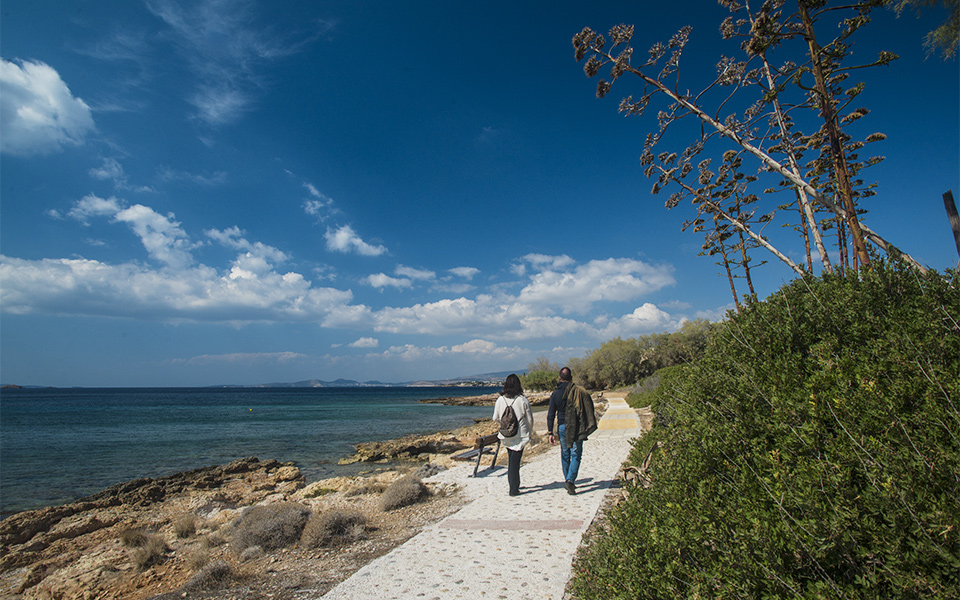
© Clairy Moustafellou
Other Places to Visit
Strofilia Winery (tel. +30 22910.41650). The only visitable winery in the area and one which is the process of realigning itself. Discover new and old labels.
Polytropon Art Space (tel. +30 22993.01466). An interesting art space in Kalyvia Thorikou. The courtyard is filled with works by the well-known artist Gavrilos who has collaborated with many important Greek artists. Themed nights are frequently organized.
Oneirodimiourgies (tel. +30 22910.38063, +30 6974.115115). A workshop on the main road of Anavyssos with high quality handmade natural soaps made with olive oil and local herbs.

